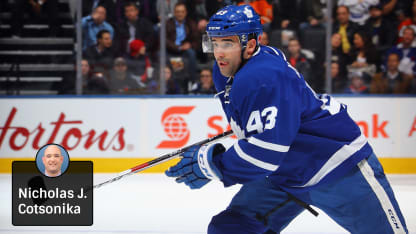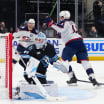The last time the Toronto Maple Leafs played the Edmonton Oilers, their shutdown center hounded Connor McDavid. He kept getting in the way so McDavid couldn't rev up to his racetrack speed. He kept bumping McDavid, hitting McDavid, bothering McDavid, drawing an exasperated smile after one nudge along the boards. He held McDavid without a point.
Oh, and he scored twice himself, including the overtime goal in a 3-2 victory at Air Canada Centre on Nov. 12.
And so a storyline entering Toronto's game against Edmonton at Rogers Place on Tuesday (9 p.m. ET; NBCSN, SNW, TSN4, NHL.TV) is how coach Mike Babcock might not be able to match his shutdown center against McDavid, the NHL's leading scorer, because he's on the road and doesn't have the last change.
But think about that for a minute: The shutdown center McDavid might avoid is Nazem Kadri.
Nazem Kadri's growth has been 'phenomenal'
Shutdown center prominent part of Maple Leafs coach Mike Babcock's game plan

© Bruce Bennett/Getty Images

















